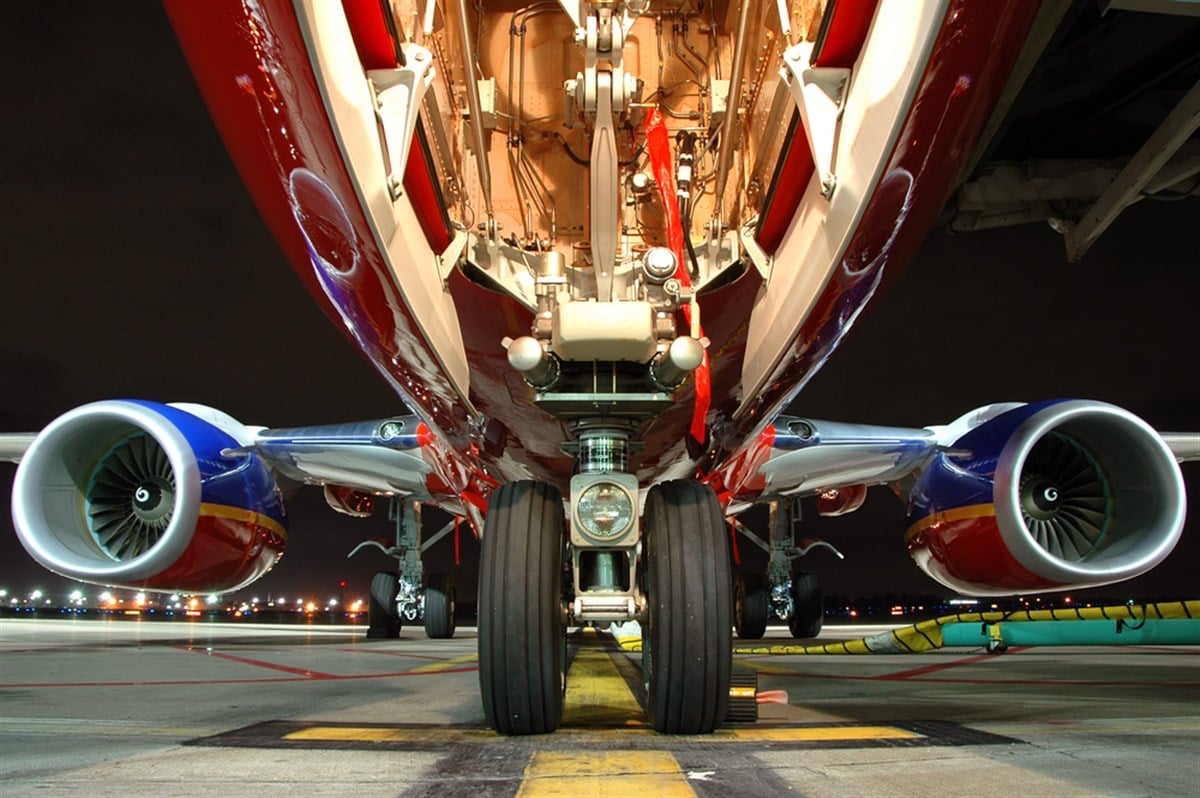Boeing Takes a hit after 737 Max grounding Boeing is navigating a critical situation with its 737 Max, addressing safety concerns and market repercussions to rebuild trust and ensure future stability.
This story originally appeared on MarketBeat

Boeing (NYSE: BA), a giant in the aerospace industry, is currently facing a pivotal challenge. The turbulence surrounding Boeing's 737 Max program took a sharp turn for the worse on Friday, as a mid-air incident involving a door plug failure forced the Federal Aviation Administration (FAA) to issue an emergency grounding order for all 737 Max 9 aircraft operated by U.S. carriers. This latest episode casts a long shadow on Boeing's recent struggles, including fluctuating profitability and persistent supply chain disruptions, and raises critical questions about the future of the jetliner.
Emergency descent: Unveiling the market impact
Friday's incident aboard an Alaska Airlines (NYSE: ALK) 737 Max 9 wasn't just a terrifying experience for passengers and crew; it sent tremors through the aviation industry and beyond. The dramatic mid-air loss of a door plug, forcing an emergency landing, instantly reignited safety concerns surrounding the jetliner and prompted the FAA to take swift action.
The technical details paint a concerning picture. A 60-pound panel covering an optional exit door ripped off at roughly 16,000 feet, causing depressurization and forcing the pilots to execute an emergency descent maneuver and turn back. Thankfully, no injuries were reported, but the potential safety hazard sent shockwaves through the market.
Wall Street responded with a swift sell-off, dragging Boeing's stock price down by 9% in pre-market trading. Analyst commentary about Boeing quickly followed, with downgrades and cautious outlooks becoming the new norm. The sentiment shift was palpable, reflecting a deep-seated concern about the reliability of the 737 Max and the potential for further reputational damage for Boeing.
However, comparing this reaction to past Boeing crises, particularly the fatal crashes of 2018 and 2019, reveals similarities and key differences. While the immediate market plunge echoes the initial shock of those tragedies, the lack of casualties this time offers a glimmer of hope for a less protracted downturn. Additionally, the grounding order, while disruptive, signifies a proactive approach by the FAA, potentially mitigating the long-term damage compared to the drawn-out investigation process that followed the crashes.
Analyst perspectives on Boeing's turbulence
As Boeing grapples with the fallout of the 737 Max grounding, investors are hanging on every word from industry analysts to decipher the potential long-term implications. Wall Street's analysts have offered a mixed bag of perspectives, reflecting the situation's inherent uncertainty.
On the bearish side, Goldman Sachs (NYSE: GS) delivered a blow by downgrading Boeing's rating, citing concerns about the incident's impact on customer confidence and potential production delays. Their analysts cautioned that the grounding could erode airline trust in the 737 Max, leading to order cancellations and further financial hardships for Boeing.
However, not all analysts are singing the same somber tune. While acknowledging the near-term challenges, Credit Suisse (NYSE: CS) expressed a more optimistic outlook for the long term. They pointed to Boeing's history of overcoming past crises and its strong balance sheet as factors that could aid in weathering this storm. They emphasized the importance of Boeing's swift and transparent response to the incident as a key determinant of its ultimate recovery.
Other analysts, like Morgan Stanley (NYSE: MS), adopted a measured approach, highlighting the need for further investigation before issuing definitive pronouncements. They emphasized the importance of understanding the root cause of the door plug failure and Boeing's proposed corrective measures before accurately assessing the potential financial and reputational damage.
Charting a course through crisis
With the 737 Max grounded again, Boeing is at a critical juncture. The company's immediate and long-term response to this crisis will significantly determine its path. Let's take a minute to review potential strategies Boeing could employ to weather the storm and regain the trust of investors, airlines, and passengers:
Prioritizing quality control
The door plug failure demands a rigorous reevaluation of Boeing's quality control measures. Implementing comprehensive inspections across the 737 Max production line, tightened supplier oversight, and a thorough review of production processes are crucial to ensuring future aircraft meet the highest safety standards.
Collaboration with the FAA
Open and transparent communication with the FAA is paramount. Proactively sharing investigation findings, proposing effective fixes, and actively collaborating on the inspection process demonstrate Boeing's commitment to safety and regulatory compliance. This collaborative approach can expedite the grounding's resolution and rebuild trust with the governing body.
Embracing transparency
Clear and consistent communication with all stakeholders is critical during this period of uncertainty. Timely updates on the investigation's progress, detailed explanations of corrective actions, and proactive communication of Boeing's unwavering commitment to safety can help mitigate negative publicity and reassure airlines, passengers, and investors.
Repairing reputational damage
The recent incident and past challenges have taken a toll on Boeing's reputation. Launching targeted PR campaigns to rebuild trust with airlines and passengers becomes crucial. Highlighting past safety improvements, showcasing the company's investments in quality control, and demonstrating a genuine commitment to transparency can contribute to restoring public confidence.
In crisis management, the speed and decisiveness of the response are often as crucial as the actions themselves. Industry stakeholders and the public will closely watch Boeing's immediate steps after the grounding. A swift, comprehensive, and transparent approach to addressing the issues and effective communication strategies can significantly mitigate the long-term impact on the company's reputation and financial health.










